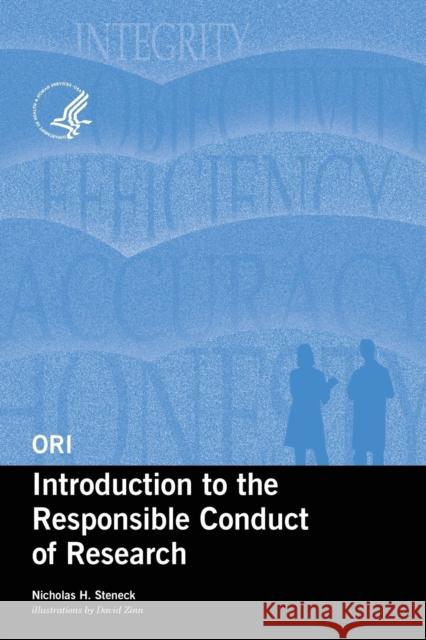Ori Introduction to the Responsible Conduct of Research, 2004 (Revised) » książka
Ori Introduction to the Responsible Conduct of Research, 2004 (Revised)
ISBN-13: 9780160722851 / Angielski / Miękka / 2004 / 178 str.
The "ORI Introduction to the Responsible Conduct of Research" draws together in a single, easy-to-read book the fundamentals of responsible research. Readers are guided through the complex world of regulations and best practices, from initial design through to publication. Each chapter is devoted to one of ORI's nine core areas, include: research misconduct, human and animal research, data management, conflict of interest, collaboration, mentoring, authorship and peer review.
While it is often assumed that researchers learn responsible practices on the job, many do not. And unfortunately, sometimes what they learn on the job is misguided or wrong. The "ORI Introduction to RCR" provides an easy way for anyone from beginning undergraduate researcher to experienced postdoc, faculty member or industrial scientist to learn what society expects of them as professionals. Opening cases, study questions, and additional readings make this book ideal for classroom use. A series of original cartoons by artist David Zinn at the beginning of each chapter use humor as a way to engage the reader in this serious and vitally important topic.
This important and authoritative publication was created by the U.S. Government to further activities and support programs that enhance education in the responsible conduct of scientific research. It supplements existing resources by making a comprehensive overview of basic rules of the road for responsible research available to all Public Health Service funded researchers, with a special focus on the needs of small and mid-size research institution and beginning researchers in mind.
The "ORI Introduction to the Responsible Conduct of Research" draws together in a single, easy-to-read book the fundamentals of responsible research. Readers are guided through the complex world of regulations and best practices, from initial design through to publication. Each chapter is devoted to one of ORI's nine core areas, include: research misconduct, human and animal research, data management, conflict of interest, collaboration, mentoring, authorship and peer review.
While it is often assumed that researchers learn responsible practices on the job, many do not. And unfortunately, sometimes what they learn on the job is misguided or wrong. The "ORI Introduction to RCR" provides an easy way for anyone from beginning undergraduate researcher to experienced postdoc, faculty member or industrial scientist to learn what society expects of them as professionals. Opening cases, study questions, and additional readings make this book ideal for classroom use. A series of original cartoons by artist David Zinn at the beginning of each chapter use humor as a way to engage the reader in this serious and vitally important topic.
This important and authoritative publication was created by the U.S. Government to further activities and support programs that enhance education in the responsible conduct of scientific research. It supplements existing resources by making a comprehensive overview of basic rules of the road for responsible research available to all Public Health Service funded researchers, with a special focus on the needs of small and mid-size research institution and beginning researchers in mind.











